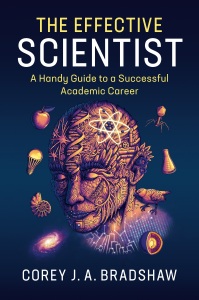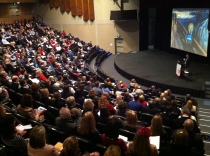 What is an effective scientist?
What is an effective scientist?
The more I have tried to answer this question, the more it has eluded me. Before I even venture an attempt, it is necessary to distinguish the more esoteric term ‘effective’ from the more pedestrian term ‘success’. Even ‘success’ can be defined and quantified in many different ways. Is the most successful scientist the one who publishes the most papers, gains the most citations, earns the most grant money, gives the most keynote addresses, lectures the most undergraduate students, supervises the most PhD students, appears on the most television shows, or the one whose results improves the most lives? The unfortunate and wholly unsatisfying answer to each of those components is ‘yes’, but neither is the answer restricted to the superlative of any one of those. What I mean here is that you need to do reasonably well (i.e., relative to your peers, at any rate) in most of these things if you want to be considered ‘successful’. The relative contribution of your performance in these components will vary from person to person, and from discipline to discipline, but most undeniably ‘successful’ scientists do well in many or most of these areas.
That’s the opening paragraph for my new book that has finally been release for sale today in the United Kingdom and Europe (the Australasian release is scheduled for 7 April, and 30 April for North America). Published by Cambridge University Press, The Effective Scientist. A Handy Guide to a Successful Academic Career is the culmination of many years of work on all the things an academic scientist today needs to know, but was never taught formally.
Several people have asked me why I decided to write this book, so a little history of its genesis is in order. I suppose my over-arching drive was to create something that I sincerely wish had existed when I was a young scientist just starting out on the academic career path. I was focussed on learning my science, and didn’t necessarily have any formal instruction in all the other varied duties I’d eventually be expected to do well, from how to write papers efficiently, to how to review properly, how to manage my grant money, how to organise and store my data, how to run a lab smoothly, how to get the most out of a conference, how to deal with the media, to how to engage in social media effectively (even though the latter didn’t really exist yet at the time) — all of these so-called ‘extra-curricular’ activities associated with an academic career were things I would eventually just have to learn as I went along. I’m sure you’ll agree, there has to be a better way than just muddling through one’s career picking up haphazard experience. Read the rest of this entry »








